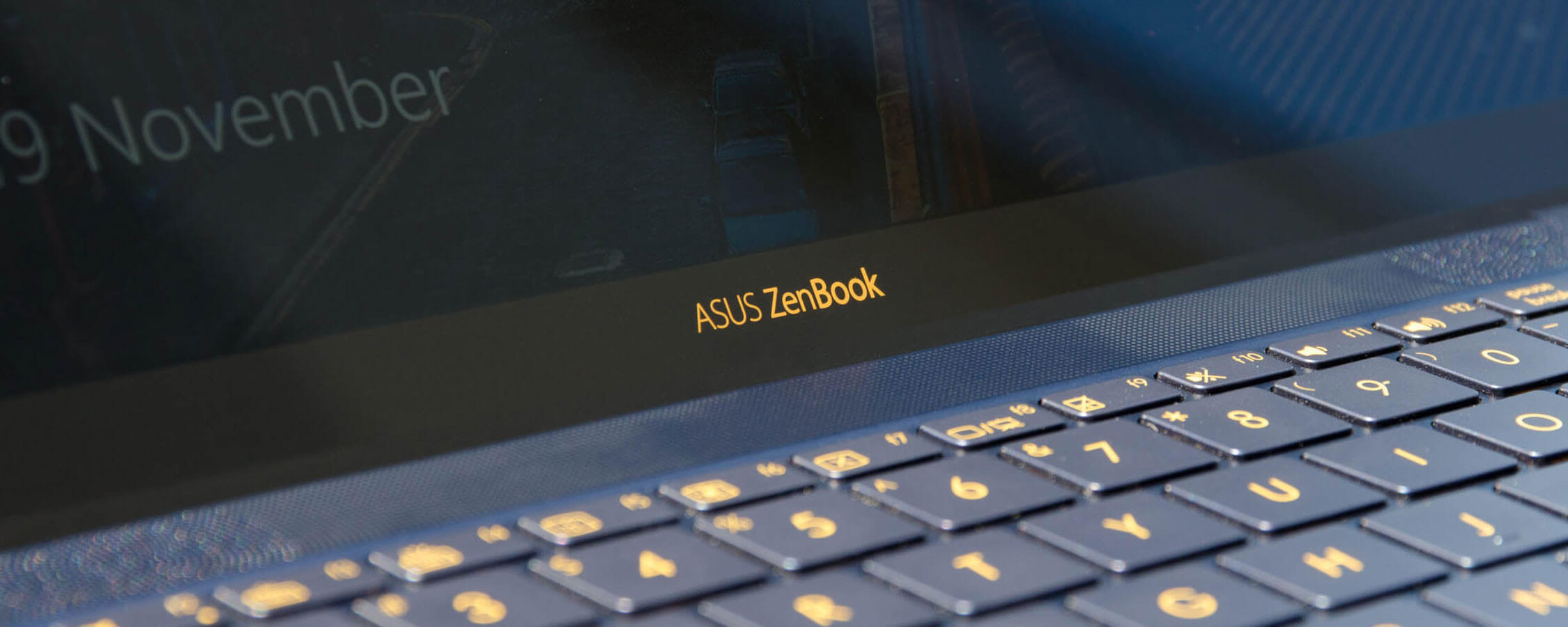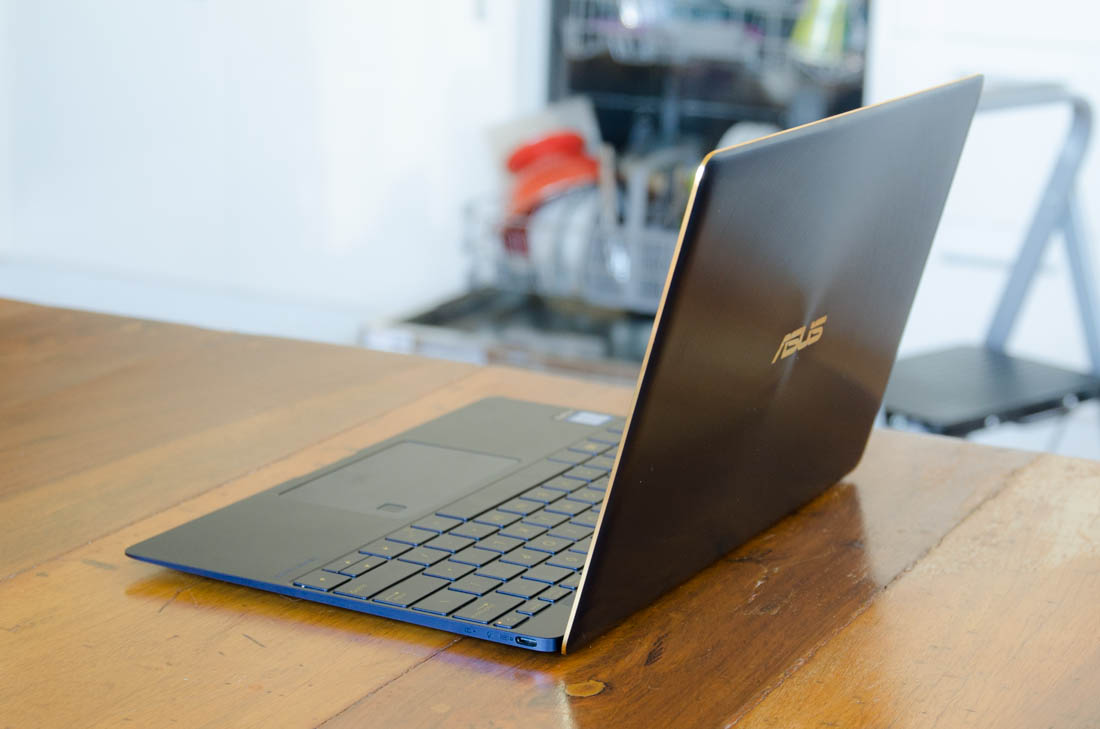Who Is It For?
The Asus ZenBook 3, much like the Apple MacBook it attempts to imitate, is a beautiful yet flawed piece of hardware. For the right consumer, this thin and light laptop will be the perfect machine for work on the go, but some key limitations prevent it from taking the ultraportable market by storm.
The ZenBook features the nicest design I've seen from Asus so far. While Asus has clearly lifted some design elements from its direct competitors, the result is a stunning metal unibody in an attractive mix of blue with gold highlights. This laptop's sub-1kg weight assists with portability in a significant way, and its slimness is truly something to behold.
Several trade-offs have been made in the quest for the slimmest laptop possible. The edge-to-edge keyboard has a spacious layout, but shallow travel distance leads to a so-so typing experience. Asus has opted for only one USB-C port, which is a MacBook 'feature' no company should consider imitating.
USB-C is fine on a laptop this thin, but a single port is unnecessarily restrictive and unforgivable on a laptop of this price. The position of the fingerprint sensor is strange as well, although the inclusion of the sensor itself is a welcomed move.
Unless you're strictly a Mac user, it's hard to recommend the MacBook over the ZenBook if you want a fast and portable system.
Performance is where the ZenBook comfortably beats the MacBook thanks to a full-power Kaby Lake processor. The Core i7 model in my review unit wasn't significantly faster than a Skylake equivalent, but it comfortably trounced the Core M part found in the MacBook by a significant 45 percent.
Equipped with the i7-7500U, you can also expect better performance than the Core i5 HP Spectre, if you're in the market for a thin-and-light laptop.
The downside to using a 15W processor is power consumption. The battery in the ZenBook is just 40 Wh, around the same size as the battery in the MacBook, yet the Core i7 or i5 processor consumes more power than Core M. This leads to average though not terrible battery life; I typically got 6 hours of good use out of the ZenBook 3, when ideally I'd like to see at least 8 hours.
While the ZenBook 3 is not the perfect ultraportable, Asus has priced it aggressively. At $1,099 for the base model with a Core i5-7200U, 8 GB of RAM, and a 256 GB SSD, the ZenBook 3 is a good $200 cheaper than the base MacBook and provides superior performance. Unless you're strictly a Mac user, it's hard to recommend the MacBook over the ZenBook if you want a fast and portable system.
Up against Windows laptops, the base model ZenBook is essentially the same price as the HP Spectre, and you can purchase an upgraded Spectre for $1,349 that matches the $1,599 ZenBook's hardware, except for 16 GB of RAM. Considering the Spectre includes a better keyboard and more USB ports, the ZenBook 3 only wins if you want the lighter chassis.
Shopping shortcuts:
That's not to say the ZenBook 3 is a bad piece of hardware; in fact I quite like the amount of power that's packed into this design. It's simply not the standout laptop in the ever expanding ultrathin market.
score
Pros: Excellent thin and light metal build. Packs all the performance of a full-power 'Kaby Lake' processor. More affordable than the MacBook for better hardware.
Cons: Only one USB-C port is bad. Average battery life and keyboard.



